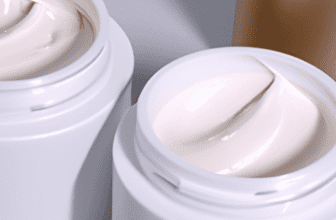The Role of Tea Tree Oil in Skincare
-
Table of Contents
- The Role of Tea Tree Oil in Skincare
- Key Takeaways
- Unveiling the Power of Tea Tree Oil
- The Benefits of Tea Tree Oil in Skincare
- The Potential Side Effects of Tea Tree Oil
- How to Use Tea Tree Oil Correctly
- FAQ Section
- 1. Can tea tree oil be used daily?
- 2. Can tea tree oil lighten skin?
- 3. Can tea tree oil remove scars?
- 4. Can tea tree oil cause breakouts?
- 5. Can tea tree oil be used on sensitive skin?
- Wrapping Up
- Further Analysis
- Key Takeaways Revisited
The Role of Tea Tree Oil in Skincare

[youtubomatic_search]
Key Takeaways
- Tea tree oil is a potent natural ingredient with numerous benefits for skincare.
- It has antimicrobial and anti-inflammatory properties that can help treat acne and other skin conditions.
- Despite its benefits, tea tree oil can cause side effects in some people, including skin irritation and allergic reactions.
- It’s essential to use tea tree oil correctly to maximize its benefits and minimize potential risks.
- More research is needed to fully understand the role of tea tree oil in skincare and its long-term effects.
Unveiling the Power of Tea Tree Oil
Tea tree oil, derived from the leaves of the Melaleuca alternifolia plant native to Australia, has been used for centuries as a natural remedy for various health conditions. In recent years, it has gained popularity as a potent ingredient in skincare products due to its antimicrobial and anti-inflammatory properties.
The Benefits of Tea Tree Oil in Skincare
Tea tree oil’s antimicrobial properties make it an effective treatment for acne. A study published in the Medical Journal of Australia found that a 5% tea tree oil gel was just as effective as a 5% benzoyl peroxide lotion in reducing acne lesions, with fewer side effects.
Its anti-inflammatory properties can also help soothe irritated skin and reduce redness and swelling. A study in the Journal of Inflammation found that tea tree oil reduced inflammation in skin cells in the lab, suggesting it could be beneficial for inflammatory skin conditions like eczema and psoriasis.
Furthermore, tea tree oil can help heal wounds and prevent infection. A study in the Journal of Alternative and Complementary Medicine found that tea tree oil helped speed up wound healing and reduced inflammation.
The Potential Side Effects of Tea Tree Oil
Despite its benefits, tea tree oil can cause side effects in some people. The most common side effect is skin irritation, which can include redness, itching, and dryness. In rare cases, it can cause an allergic skin reaction.
It’s also important to note that tea tree oil should never be ingested as it can be toxic if swallowed. Always keep it out of reach of children and pets.
How to Use Tea Tree Oil Correctly
To minimize the risk of side effects, it’s essential to use tea tree oil correctly. Always dilute it with a carrier oil like coconut or jojoba oil before applying it to your skin. A common recommendation is a 5% solution, which equates to about 5 drops of tea tree oil for every teaspoon of carrier oil.
Before using tea tree oil for the first time, do a patch test to check for any allergic reaction. Apply a small amount to a patch of skin on your inner arm and wait 24 hours to see if any reaction occurs.
FAQ Section
1. Can tea tree oil be used daily?
Yes, tea tree oil can be used daily, but it’s important to dilute it with a carrier oil and do a patch test first to check for any allergic reaction.
2. Can tea tree oil lighten skin?
There’s no scientific evidence to suggest that tea tree oil can lighten skin. However, it can help reduce redness and inflammation, which may improve the overall appearance of your skin.
3. Can tea tree oil remove scars?
While tea tree oil can help heal wounds and prevent infection, there’s no conclusive evidence that it can remove scars. However, it may help reduce the appearance of acne scars by reducing inflammation and promoting skin healing.
4. Can tea tree oil cause breakouts?
In some people, tea tree oil can cause skin irritation, which can lead to breakouts. Always dilute it with a carrier oil and do a patch test first to minimize this risk.
5. Can tea tree oil be used on sensitive skin?
Tea tree oil can be used on sensitive skin, but it’s important to dilute it with a carrier oil and do a patch test first to check for any allergic reaction.
Wrapping Up
Tea tree oil is a potent natural ingredient with numerous benefits for skincare. Its antimicrobial and anti-inflammatory properties can help treat acne and other skin conditions, and it can also help heal wounds and prevent infection. However, it’s essential to use it correctly to maximize its benefits and minimize potential risks. More research is needed to fully understand the role of tea tree oil in skincare and its long-term effects.
[youtubomatic_search]
Further Analysis
While the benefits of tea tree oil in skincare are promising, more research is needed to fully understand its role and long-term effects. Future studies should focus on determining the optimal concentration of tea tree oil for different skin conditions, exploring its potential side effects in more detail, and comparing its effectiveness with other natural and synthetic skincare ingredients.
Key Takeaways Revisited
- Tea tree oil is a potent natural ingredient with numerous benefits for skincare.
- It has antimicrobial and anti-inflammatory properties that can help treat acne and other skin conditions.
- Despite its benefits, tea tree oil can cause side effects in some people, including skin irritation and allergic reactions.
- It’s essential to use tea tree oil correctly to maximize its benefits and minimize potential risks.
- More research is needed to fully understand the role of tea tree oil in skincare and its long-term effects.





